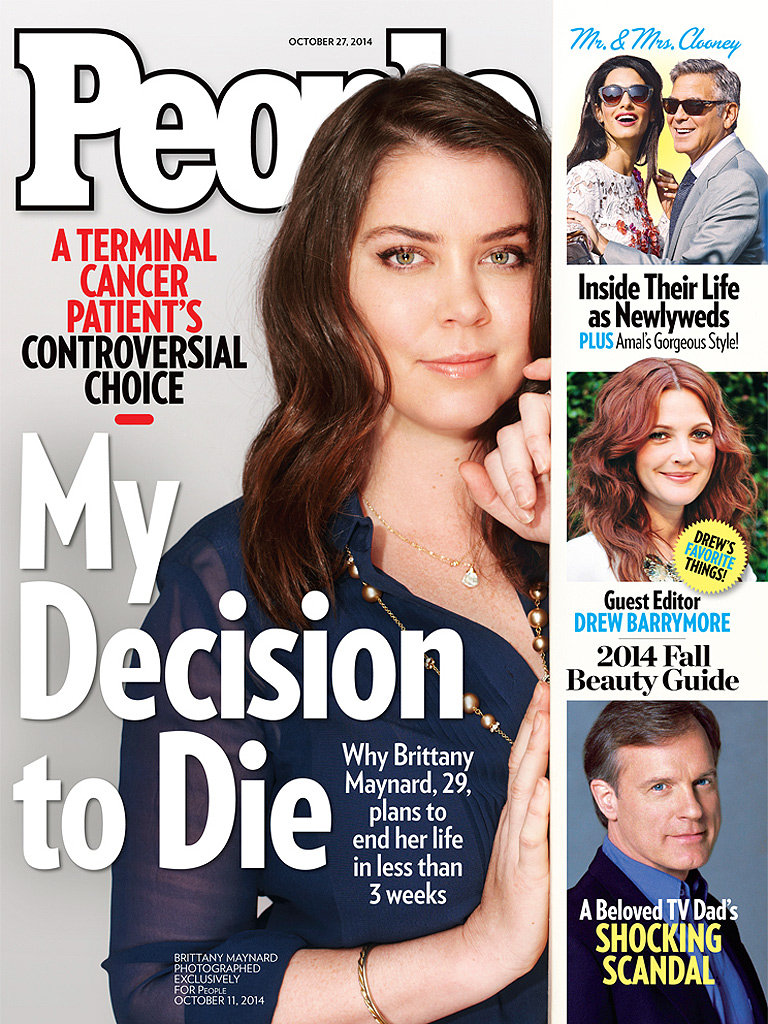 |
| Beautiful Women on a cover of a known magazine . Suicide is now Glamorized ? |
NOTES AND COMMENTS:
*** The biggest problem with assisted suicide is gauging the intent of the person. If the infirmity is mental in nature, they may not have the capacity to consent to such an act (which is what got Kevorkian into trouble).The only thing worse is using a religious appeal to chime in on the subject. Religious attitudes towards suicide are arbitrary and contradictory at best. Pretty much any time religious dogma gets involved with medical science, nothing good comes from it. Be it on the subject of abortion, life supporting equipment, or in this case assisted suicide. It creates hard arbitrary rules where flexible context dependent actions are required. (1)> Just two months ago, the cover of People magazine was a tribute to late actor Robin Williams, who had just taken his own life. As they put it, Williams, “lost his battle with mental illness.” That they considered his death a tragedy was eminently clear. Fast-forward to the most recent issue, and People has an entirely different take on suicide.This week’s People features Brittany Maynard, the 29 year-old woman with terminal cancer who captured national attention when she moved to Oregon in order to be able to legally end her life. People’s coverage of her pending suicide is wholly different from its coverage of William’s suicide. The coverage of Maynard includes language like “die in peace” and “heart of a warrior.” (2)> A Pew Research Center survey conducted last year found that two-thirds of Americans say there are circumstances in which a patient should be allowed to die, as opposed to doctors and nurses always doing everything possible to save the life of a patient. But U.S. adults are more divided about laws that allow doctor-assisted suicide for terminally ill patients, with 47% in favor of such laws and 49% opposed. Views on doctor-assisted suicide are little changed since 2005.
No comments:
Post a Comment